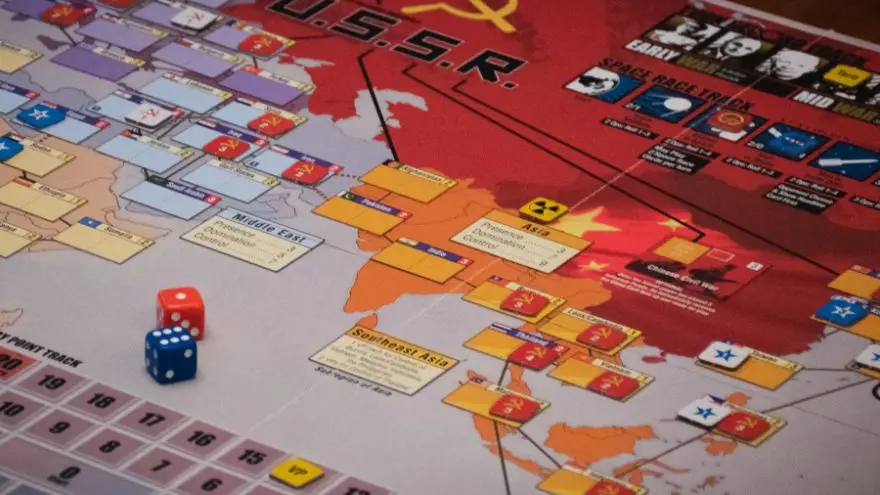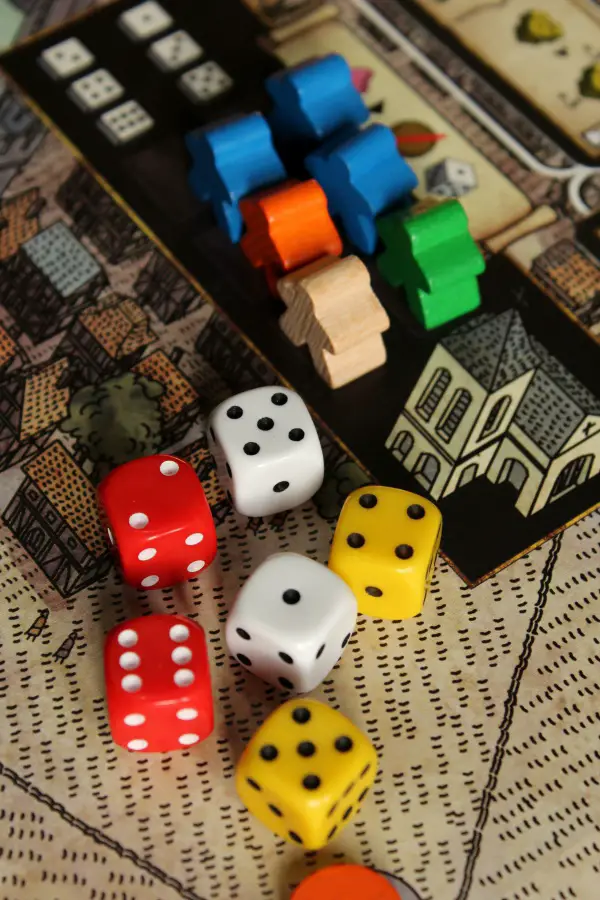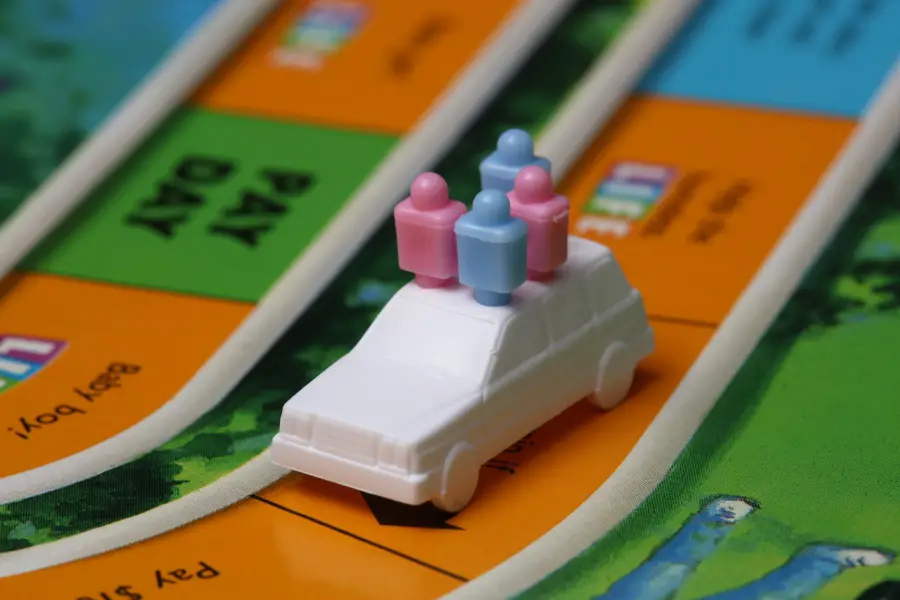The Benefits of Role-play Board Games for Children

When you think about board games you may imagine the stress and turmoil of a good family game of Monopoly or the hurt feelings that happen when someone bumps someone else back to where they started in Sorry, but winner takes all board games aren’t the only type out there, and more and more people are realizing that cooperative gaming is a great way for kids to learn.
Role-play board games are becoming more popular in recent years, even though they’ve been around for decades. You might remember people talking about Dungeons and Dragons as far back as the ’80s and maybe you’ve never played it or aren’t really even sure how it is played. However new interest has been sparked as the geekification of culture has begun, and shows like Stranger Things on Netflix bring back the nostalgia of getting together with your friends and playing an old style RPG (role-playing game).
Role-play board games are usually cooperative.
Cooperative gaming is when all players are working together to achieve a common goal. Perhaps you are all on a quest to retrieve a treasure for a king, or working to rid a town of an obnoxious curse. The role-playing part comes in when you all choose a character to play, depending on what game you are playing you may find yourself being an elf, a wizard with magical powers and a list of spells, or even just a regular person with some cool gadgets. The depth at which you develop your character’s backstory and personality is up to you. Many people spend hours just creating a persona to play and they stay in-character throughout the whole game.
There are hundreds of role-playing games made for children to play especially, and others that can be made easier or more difficult for players of all ages and experience levels. Finding the game that fits your family can take some time, so seeking out a game lounge can be a great way to try before you buy. Game lounges usually charge admission per person and let you try any games on the shelf. Often children are admitted at discounted rates, and the lounge itself may have beginner’s sessions where you can learn the ins and outs of the games.
The benefits for children playing role-playing board games are as varied as the games themselves, but for most games, you can expect to see the following benefits.
Creativity
Most game systems require a GM or Game Master to be the storyteller of the game, presenting not only information about problems to solve, goals to achieve, and puzzles to work but also the set and setting and interactions with non-playing characters or NPCs like townspeople or even talking animals. Listening to these stories to find out details and figure out a path forward can make children better at listening in other situations as well.
 Playing a character can help a child explore not just playing pretend, but they can be whoever they want, and manifest motivations for that character leading them to experience situations in a safe place to make mistakes, this can really bolster creative problem-solving in the real world.
Playing a character can help a child explore not just playing pretend, but they can be whoever they want, and manifest motivations for that character leading them to experience situations in a safe place to make mistakes, this can really bolster creative problem-solving in the real world.
Emotional regulation
A big part of role-playing games are problems that may pop up unexpectedly and create a feeling of unfairness. When you finally banished a dragon and then two more pop up, it can feel frustrating. However, unlike real life where you have to act fast, an RPG gives your child time to slow down, assess the situation, think through their actions and ask questions. This can really help them learn to cope with stress more efficiently and lead to them being calmer when faced with adversity in their day to day life.
Self-confidence
Being the hero is the name of the game, and working through sticky situations by using your traits and skills to help achieve a goal can lead kids to feel capable and confident in their decision-making skills and feel like they are competent to face many obstacles.
Math skills
Depending on the game, you may encounter some basic math skills like adding and subtracting or learning about ratios and odds. These quick bits of math are nearly painless in the grand scheme of things, making extra math practice fun and entertaining.
 Cooperation
Cooperation
Unlike “in it to win it” games where everything is a zero-sum situation, playing a role-playing board game gives you not just the responsibility but the freedom to work together. Learning to accept help and to be helpful is a great way to make the game go smoother for everyone involved and learning teamwork is a needed skill in all of life.
Empathy
When your teammate gets hurt in the game or when you see someone trying very hard only to be beset by circumstances, it can help foster empathy and care. Because everyone is on the same team and working towards the same goal shared emotion through victories and setbacks are common. Learning to work with what you have and recognize everyone’s contribution to success is a strong lesson in treating others well and appreciating people for who they are.
Critical thinking
Problem-solving and critical thinking are 21st-century skills that everyone needs to develop, and there’s not a more fun way to learn how to assess a situation, figure out your assets and needs than playing a role-playing game. Learning to make a plan and enact it even when things don’t go as expected will serve your child well.
Reading and Writing
Looking up spells, comparing stats, or even just reading more about the character classes and attributes in the game can be an excellent way to motivate a child to learn more about how to use reference books, how to pull information out of them and put it into action. Writing down your character traits and trading notes during the game are easy and low-pressure ways to incorporate more practice in reading and writing.
Choosing a role-playing game can feel intimidating at first, especially if you haven’t played before, but you should be able to find a group in your community that will help you get started.







